Speed Grieving
If speed grieving were a thing, it would serve as a giant Stop Exercise—an invitation to take nothing for granted and fall into a state of wonder.
Daphne was emphatic: “At some point, you need to rest — and wait.”
That was not what I wanted to hear one month after Karen’s passing. As an old friend, I imagined Daphne would be impressed — me working into the night, perched on a ladder, painting over the bedroom's boudoir red with Spartan beige, repairing cracks, tossing tchotchkes, clearing the mirror of family pics, dumping papers, books, remedies, CPAP gear, and every business card Karen tossed into her drawer for 30 years. All gone.
"I realize this attitude — waiting — is not creative,” Daphne added. It takes the creative out of your hands. And it may seem boring with nothing to do but breathe. But dear man… I sense you need to give yourself an extended STOP exercise."
My friend Sherrill concurred: “Dearest Bruce, I say let it unfold however it will. Healing after such a profound loss takes time and patience.”
And Lianne: “My mom always said, ‘This too shall pass.’ She was right. Let’s add, in its own time.'
My friend Don, who had also lost his wife, gave an unsubtle nudge:
"Bruce, you are certainly going full steam, and of course, you have your whole life of experience and the alchemical transformation of Karen's passing. But I don't know whether a partner is needed or not.”
And then the zinger, “I suspect not."
Don had a new wife and life in Santa Fe, so I resisted the obvious retort. Besides, he helped me cross the dark waters of grief — so I welcomed his help.
I assembled a Grief Advisory Board (GAB)
I invited four women to dinner who collectively lost two children to drug overdoses, a grandchild to crib death, a spouse to cancer, plus three divorces. Ignoring Daphne’s advice to ease the throttle, I took my mania into the kitchen, serving salmon with pesto, asparagus with anchovies and garlic, savory lentil spinach soup, quinoa salad, Brazilian cheese puffs, French fruit tart, and Seven Deadly Zins.
Once sated, the ladies stood from the table and announced:
“We are adding to the contract: No dating for a year.”
Huh?
So, I checked with friends, hoping for a sympathetic ear, and they concurred. “Yes, that seems wise.”
The GAB penciled an addendum: “Lesbians excepted.”
If you’re using this book as a grief guide, you can spare my advice and follow your feral instinct. I jokingly called my feral approach (to everyone’s horror) “Speed Grieving.”
Speed grieving was my attempt at a Henny Youngman punchline, but it morphed into an actual strategy. I Googled “Speed Grieving” and discovered a movie title:
LOGLINE: Speed Grieving: “Is it possible to process grief through a whirlwind scientific study?”
OPENING SCENE: A scientist directs Malia, a hurried, grieving female executive, to speed through her grief:
Scientist: “I want to thank you for being a part of this very important clinical trial. You'll find wine and tissues on the table for your convenience.”
Malia (harried): “Yeah, well, this sounds interesting, but I have a 4:30 pm board meeting. And after that, a phone call.”
Scientist: “Our research indicates that you can efficiently grieve in only 15 minutes.
Malia (curt): “You just heard me, I’m…” (she pauses) Really?
Scientist: “Well, that's what we're gonna find out.” She picks up her stopwatch. “Ready?”
Malia is startled.
Scientist: “Time… to… breathe! (click)”
Like Malia, I was too busy to watch a movie, but then I discovered Speed Grieving was only 12 minutes long.
Seeking more meat, I downloaded Dr. Andrew Huberman.
Huberman’s two-hour podcast explored the “science” of grief.
Huberman began: “Let's think about grief as a motivational state, as a desire for something specific.”
This matched my experience, that grieving is a motion (like surfing unexpected big waves), not an emotion.
Huberman went on:
“I'd like you to think about grief as an attempt to reach out and get something you very much want. Imagine being extremely thirsty, and a glass of water is right in front of you... But no matter how intensely you want it, no matter how hard you try to reach it, it always shifts just outside your reach. If you can imagine this, you are touching into the experience of grief. How do I know this? Brain imaging studies that evaluate the neural activity of grief show the grief areas associated with motivation and craving.”
“Grief is not just a state of sadness and pain. It is a state of yearning for something just outside your reach, and it will always be outside your reach until you remap your relationship with that person or thing.”
Remapping? I thought I was sad and lonely. Am I remapping my relationship with Karen? For one thing, she was now disembodied but still strangely with me.
I found a Speed Grieving book title on Amazon:
SUMMARY: “When Allison Ellis’s husband died of an unexpected heart attack, there was no playbook for a thirty-three-year-old widow with a breastfeeding infant. In her grief, she devised a practical strategy: find a new husband within twelve months. What transpired was a year of speed grieving, manic dating, and breaking hearts across Seattle on a deadline mission to heal her own.”
You go, Allison. Speed grieve!
I opened my mailbox to find a thick bereavement packet from Hospice Atlanta.
Inside, a flyer cautioned: “Don’t be surprised if you feel foggy-headed, angry, relieved, sick, in disbelief, exhausted, alone, or lost.” And my favorite, “Don’t be surprised if you find yourself CRYING… and don’t know why.”
Thank you, I knew why just fine. But as the flyer warned, I started bawling like a baby in yoga class (cleverly concealed with a blanket). Deep sensations poured through me – all those years in class with Karen at my side, bringing her props, singing to Krishna Dass, high-fiving difficult postures, and doing the noble work to tell FUCKING INCURABLE CANCER to stuff it for nine years.
Bridget described my state as “labile.”
I looked it up. Labile: “Characterized by emotions that are easily aroused or freely expressed, and that tend to alter quickly and spontaneously; an emotionally unstable state.” More important, being “open to change.”
That night, I put my grief playlist on auto-repeat — the list that includes the Ballad of Fuck All by Malcolm Middleton, an instant trigger to my labile state.
I sent out an all-points text message to my Grief Advisory Board while weeping cathartic tears:
“Hey, Grief Advisors. I’m hanging with the Ballad of Fuck All tonight. That’s where I’m at.”
The response: Crickets. Nada.
I upped the ante and posted the lyrics to my 361 friends on Facebook:
“I'm so bored
Soul destroying gloom
The walls are closing in all around…
Life-threatening doom
Dragging me darker and down, etc.”
I wasn’t sure if I was testing the Grief Support System or a “real emergency,” so I quickly deleted the post — but not before my friend Carol caught it like a hawk. Her all-feeling AWACS was watching the emotional horizons. She immediately wrote:
Hi Bruce. I saw the Fuck All post and was commenting, then it vanished. Sounds pretty low. Did anyone come for you? Love you, Brucie." Carol.
I quickly pivoted to put her mind at ease.
Hi Carol. I put it up 1) because I was listening to the song, and it resonated, and 2) to see if someone noticed — and you did. Bless you.
Wow. Not only do the angels watch over us, they enlist our friends.
If Speed Grieving was real, I needed to articulate a strategy.
Huberman used a functional MRI to observe grief as unconsummated yearning, and Hospice Atlanta described grief as “Crying… and not knowing why.”
I chose my strategy — to “Actively Engage Grief.”
Here’s my thinking: Life is like a wild river; it follows natural laws but also goes where it pleases, making it up as it goes along. In this way, grief from a major loss throws you and your canoe into the whitewater. I remember taking raft trips with Karen down the Ocoee in Tennessee. The outfitters gave us a paddle, helmet, vest, safety instructions, and the fear of God to stay on the raft. It’s a leisurely ride until you hit the Olympics section, designed to challenge the best kayakers in the world. One after another, you face an octave of turbulent crescendos — 1) Tombstone, 2) Mikey's, 3) Blue Hole, 4) Best Ledge, 5) Smiley Face, and 6) Slam Dunk.
“STROKE HARD LEFT!” Ka-swoosh! When you’re beholden to five hapless souls in an inflatable raft, like with grief, your fate is tied to the ride. And like with my New Year’s resolution, we said yes to everything the river threw at us.
The finale was 7) Humongous. If you approach Humongous at the wrong angle, you will flip. If you hit it with insufficient speed, the raft will stall, slide backward, spin slowly, and finally dump everyone aboard. Imagine a mechanical bull slowly, then suddenly tossing a group of paddlers. As we approached Humongous, I watched the vortex swallow the raft ahead of us and jettison the ill-fated paddlers into the raging river. Rescuers pulled them out, and, not surprisingly, most chose to end their expensive adventure there.
“Stroke hard,” Tully, our guide, commanded. The five of us pulled manically hard, ramming our raft through the raging water, pushing through the maelstrom, and from sheer terror, we over-shot our landing and slammed into a group of innocents chilling at the river’s edge.
“Um, excuse us.”
What does this story have to do with Actively Engaging Grief? We made a conscious decision to raft the river and paddle into the unknown, knowing no one gets off the boat.
A grieving journey takes you to the point of no return.
When Karen died, I was in shock. After the first few nights of terror, I faced a minefield of feelings, but eventually, like all widows and widowers, I had to face the void of being alone.
I remembered the words of Quaker pastor Peter Crysdale the night before Karen died:
“You can’t get through loneliness without experiencing the loneliness.”
There’s no right way to do this, but I chose to get up off the couch from the start, reasoning, “Every step in my life has been guided, so why should this be different?”
This takes me back to Daphne:
“At some point, you need to rest. I realize this attitude is not creative. It leaves the creative out of your hands. And it may seem boring with nothing to do but breathe.”
Boring, yes — which led to the metaphysical question: When should we push?
Pushing is the question Barry Stevens posed in her classic memoir on Gestalt therapy, Don’t Push the River. She described her encounters with Gestalt founder Fritz Perls, who pushed her to do more. She wrote:
Fritz, you’re not noticing the steps I’ve taken, those hazardous steps I’ve taken which aren’t hazardous, and I see that, but they feel hazardous, and so they are. I feel you pushing me for more. Don’t push the river; it flows by itself… Let me move at my own pace… Let me take my timid steps.
And then she noticed:
How impatient am I with the same kind of timid steps taken by others.
Later, she realized:
Life doesn’t move the way we tell or write it — or think it should — or try to make it.
Finally, she boldly questioned the entire Gestalt training:
I don’t want to train therapists, and I wouldn’t be training therapists. Out of this would come really good therapists… How to teach it is not to teach it.
Hey, Daphne. Let’s talk about that STOP exercise. What if my middle name is “Impatient?”
Actively Engaging Grief engages your growing edge — where you invest your mental/emotional energy.
Growing Edge: When you’re a child, your growing edge is to get a puppy. As a teen, it’s to get a car or a prom date. In Siberia, you might pursue a washing machine. For an expectant mother, her growing edge is to bring a new life into the world.
My desperate, all-hands-on growing-edge desire was to launch Bruce 2.0 — to have one more at-bat for a meaningful chapter of life. The thought of getting stuck in a rut terrified me.
Everyone wants out of their rut, and (most) everyone gets stuck, waiting for a Fairy Godmother to turn their pumpkin into a coach. But, like porch pumpkins, our dreams collapse into November and become flabby with age.
Fuck that. Sorry, Daphne, sorry, Barry Stevens. PUSH THE RIVER, PUSH THE ENVELOPE, PUSH THE BUTTON!
In astrophysics, there’s a term called “escape velocity,” which is the speed an object needs to break free from the pull of the planet’s gravity. We can calculate a rocket's energy, but how much push is required to break from one’s old orbit and launch into the new one?
This is a serious question. How much energy, focus, determination, outside support, and love does it take to move the needle in life? Suppose that the propellant is Bondo? (Karen and I coined a special word: “Bondo” – the ability to form deep and real relationships.) A rocket can’t escape to the moon with just the propulsion in its tank; it uses the earth’s gravity as an orbital slingshot to reach escape velocity. Similarly, we need boosts of Bondo (emotional support from friends, therapists, mentors, and lovers) to reinvent our lives.
I felt Karen at my side:
“Bruce, when you engage the unknown with intention, like facing the wave head-on, there’s meaning in the experience. When you engage, the meaning develops.”
People in my life gave me little boosts of Bondo:
James: “You go, Bruce…! Just listen in to that one heart. It’s never wrong.”
Joseph: “There is no rush. The time is yours.”
I’d add Mama Cass if she were still alive:
“You gotta go where you wanna go, Do what you wanna do…”
For counterpoint, I’d add one of the 99 Names from the Koran:
"Jami — He is The One who has the power to assemble and arrange all that has been dispersed. He is the one who composes and connects things together."
Hmm. Pushing or allowing? Breathing in or breathing out?
One of Karen’s beloved hospice angels, a lesbian, invited me to the 5Rhythms dance. After 15 minutes of aimless writhing, we agreed — not our thing. But, I had affirmed my New Year’s mandate to say yes to all invitations.
The same week, I was invited to a shiva gathering — the real deal with a Rabbi, prayer books, and a mezuzah blessing for a friend’s dad. I came away with three realizations:
1. “These people are all Jewish!”
2. “My god, Jews have so many prayers. Prayers for everything.”
3. “The cute woman who lost her partner and talked me up WAS A LESBIAN!” Oy.
The next weekend, a neighbor friend invited me to the theater:
LOG LINE: “Three Black queer men sit in an ethereal waiting room. One is about to be chosen to live the unforgiving story of a man diagnosed with HIV.”
Did I mention she was a lesbian? The Grief Advisory Board addendum was eerily prescient.
Since I’m veering into the ridiculous, let me introduce my alter ego, Henny Youngman.
If you’re a certain age, you knew Youngman as a Borscht Belt comedian along with Milton Berle, Buddy Hackett, Mel Brooks, Don Rickles, and others. Decades later, Jerry Seinfeld and Jon Stewart followed their Borscht footsteps. The "Borscht Belt" stretched through the Catskill mountains and was home to the Concord and Grossinger's resorts where nearly every comic got their start, except Catholic Bob Newhart (he played the Poconos). Newhart’s best Catholic joke occurred spontaneously during a Fresh Air interview:
Terry Gross: “What did you find funny about your catholic upbringing?”
Newhart: “The basic difference between Catholics and other religions is we have confession. Non-Catholics don't understand how you go into this little dark room and tell another human being the terrible things you did during the week.”
Terry Gross: “Okay.”
Newhart: “If you're raised Catholic, you learn certain tricks, like sitting in the last pew and watching the two lines move. Whichever line moves the fastest is the one you get in because that priest wants to get out of there.
Terry Gross: “You treat it like a checkout line at the supermarket?”
Newhart: “Yes, they should have a sign: Ten Sins or Less.”
Bob Newhart took fans on a cerebral dive into human nature, whereas Henny Youngman was known for his screeching violin and one-liners, especially his self-deprecating line, “Take my wife – please!”
Why am I leaning on Henny Youngman? There is something surreal about losing your life companion (Where did she go?) I found comfort in my innate Jewish take on the absurdity of life.
So, take it away Henny (aka Bruce):
Hey, have you ever watched “Let’s Make a Deal?” Remember Monty Hall, the envelopes with cash, and doors one, two, and three? The Feds also have a game show. It’s called Social Security.
You turn on your TV; there’s Monty Hall pulling out the envelope: “Would you take $1200 a month today for the rest of your life or wait for the big money at age 70?”
My wife chose door number two — a dumb bet. She died two weeks after her 70th.
You can imagine. I was a mess. But like a good Boy Scout, I called Social Security to do the right thing. No surprise, they put me on hold.
The recorded voice said, "Please don't hang up. Your call is important," and I’m thinking, important? IMPORTANT?? What if this was a suicide?
I nominate putting hold times in the Guinness Book of World Records. This was historic. I put my phone in my shirt pocket, got in the car, and drove to the Dekalb Farmer’s Market. I parked, got a cart, and shopped the store (it’s bigger than a football field). I’m ready to check out, and I remembered the bacon. Am I allowed to say bacon in the Catskills?
At the sausage counter, I bumped into my friend Charlie; he’s a vegan. So, I’m looking at Charlie, and he’s looking at me. We both had that caught-ya look. But, I had an alibi, “Charlie, the Talmud is explicit. You can buy pork — as long as it’s for your dog.”
And Mr. Vegan goes, “Huh?”
And then the punchline: “My mother, she taught us to share!”
Charlie’s got a kielbasa, so he’s guilty as a schmuck. Fortunately, Social Security picked up as my pound was getting wrapped — 47 minutes later.
The guy was nice. “No, you won’t get your wife’s payment,” he explained, “and if they made a payment by mistake, don’t spend it; they will pull it out of your bank account next month.”
Excuse me? I didn’t like the idea of the Feds pinching my money.
The agent said, “You’ll get a one-time, lump-sum death benefit.”
Now we’re talking. He scheduled a phone session. January 23 at 9:15. Should take half an hour.”
I’m thinking, why do I need another phone session? But money is money.
Three weeks later, the new agent called — a woman. I answered a zillion questions and, get this, had to swear an oath under penalty of perjury.
I tried to make a joke, “Perjury? So what if I was a Congressman?”
She laughed, and I made her day. The half-hour was up, but we didn’t consummate the deal. She needed physical evidence of my marriage and death certificates.
Hey, for a lump sum, I’ll do anything.
A few days later, I drove to the Social Security office, signed into the kiosk, and saw all these people waiting in plastic chairs, I guess for their lump sums. I approached the guard; I didn’t have my violin, so I sweet-talked him.
“Hey, my wife worked for 55 years, starting at 15 in a taffy shop and then in the dirt-poor clinic in Tennessee. She was Sue back then. She delivered hundreds of babies and later trained chaplains—you know, representatives of God. That’s a lot of payroll deduction. I’m expecting a big lump sum.
I don’t know if the guard was amused, but to my delight, the lady who laughed at my perjury joke came out. She took my documents and went away.
She came back out and I’m thinking, okay, Monty, pull out the envelope. Drum roll: $255. The going rate for a spouse is one shopping cart at Whole Foods.
Badda boom.
Thank you, alter ego, Henny Youngman.
Maybe Daphne was right. The point of grieving is not to get through grief but to digest it — or, more accurately, to be digested by it. To be transformed by grief.
The author and dreamwork teacher Toko-Pa Turner shared a dream on Substack that cautioned against going too fast:
I dream that a tree of great significance is struck down by lightning. A bolt from above splays the giant tree in a star-like pattern. It is a numinous event that stops me in my tracks. Before I can take in what’s happening, men come efficiently and quickly buck up the tree into firewood. It all feels too fast and unfeeling, as if the grandeur of this loss isn’t being properly recognized…
Sometimes, an efficient inner force wants to step in and make something useful of it all, turn it into “fuel for transformation.” But another, quieter voice urges us to stop. Don’t commodify this loss. Don’t be so hasty to make the events of heartbreak meaningful. Not before the magnitude of what’s been destroyed can be witnessed in its entirety…
So, let’s not rush the redemption. As Rumi puts it, “Sell your cleverness and buy bewilderment.”
I found the full poem:
Love is the ark appointed for the righteous,
Which annuls the danger and provides a way of escape.
Sell your cleverness and buy bewilderment.
Cleverness is mere opinion, bewilderment intuition.1
Bewilderment struck me wrong (Definition: a state of being lost, perplexed, or confused).
So, I dug deeper and found a Persian scholar who translated bewilderment as wonder: “Sell your cleverness and buy the art of wonder.”
Wonder invokes a primordial innocence. If speed grieving were a thing, it would serve as a giant Stop Exercise—an invitation to take nothing for granted.
In my newfound childlike innocence, everything that came to me—every gesture, smile, wink, or tear—was a gift.
I learned to say thank you to it all.
The Masnavi, Book IV, Story II, as translated in Masnavi I Ma'navi : The Spiritual Couplets of Maulána Jalálu-'d-Dín Muhammad Rúmí (1898) by Edward Henry Whinfield


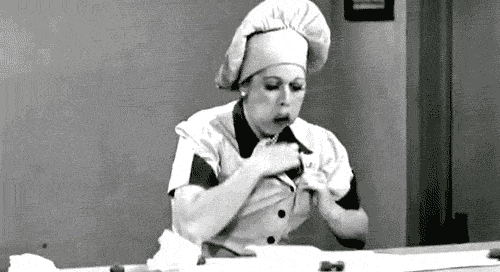







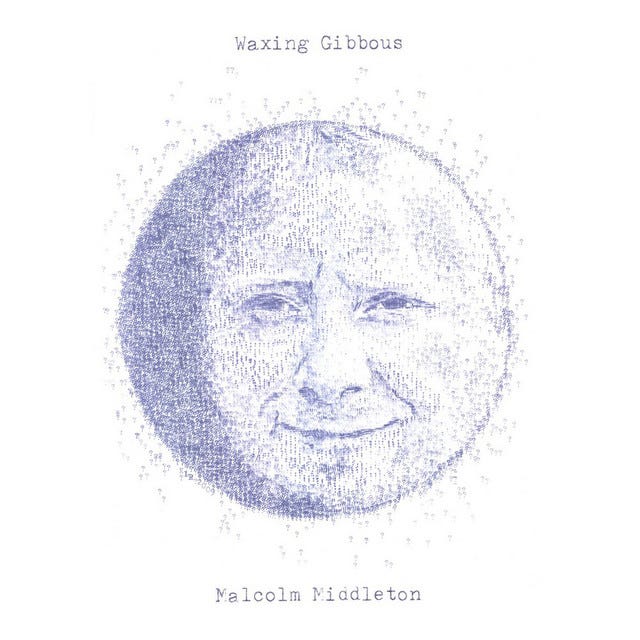
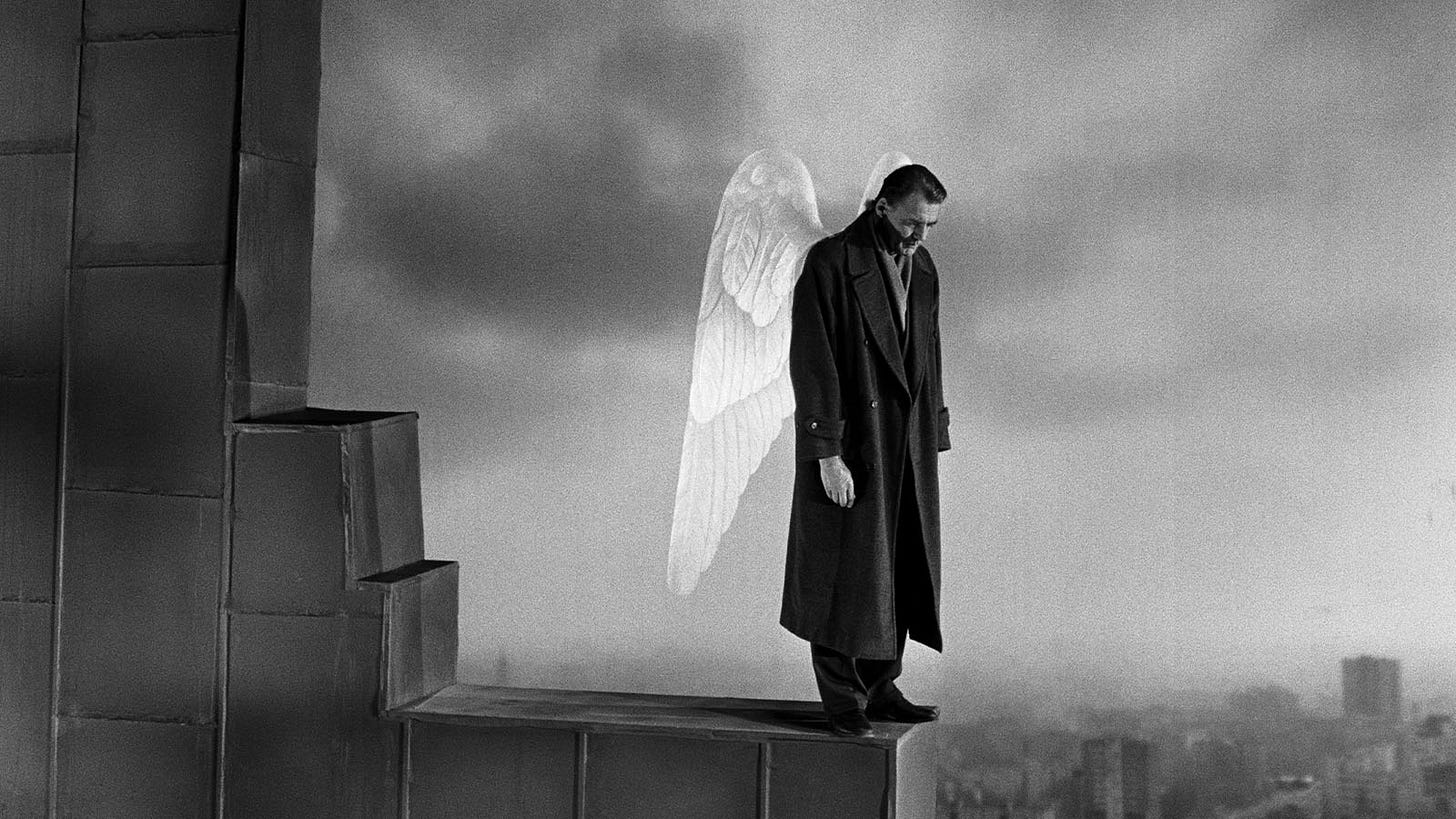

![Don't Push the River [Book] Don't Push the River [Book]](https://substackcdn.com/image/fetch/$s_!n6wH!,w_1456,c_limit,f_auto,q_auto:good,fl_progressive:steep/https%3A%2F%2Fsubstack-post-media.s3.amazonaws.com%2Fpublic%2Fimages%2F26c95dd3-32a7-401c-abbc-5a6408051d4a_1024x1544.jpeg)


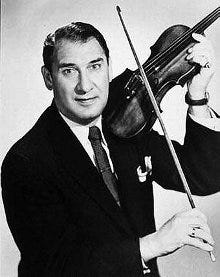
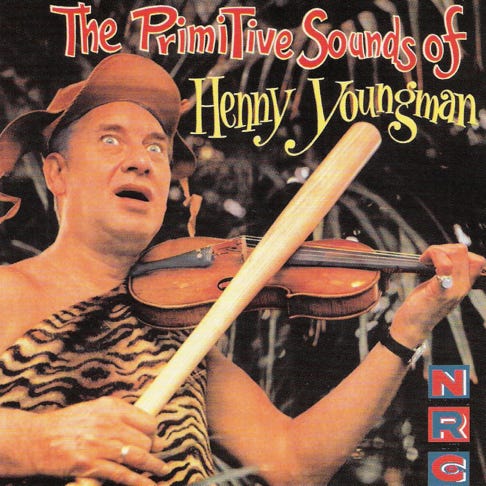



as someone who has attempted to speed grieve (widowed twice) my heart aches with you. Karen (Susie) was bridesmaid for us at my wedding with Tomas, I grieve for both of them. Love the bewilderment and wonder of Rumi you share. Thank you for all of it.